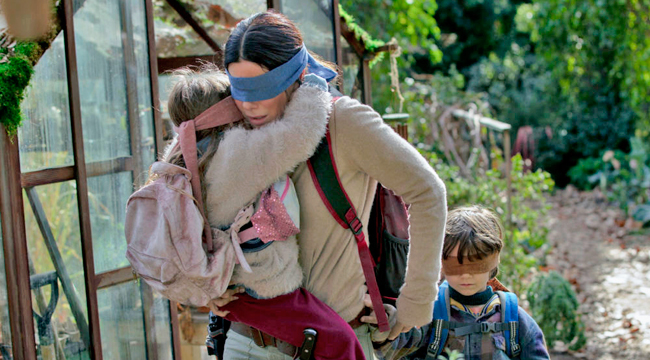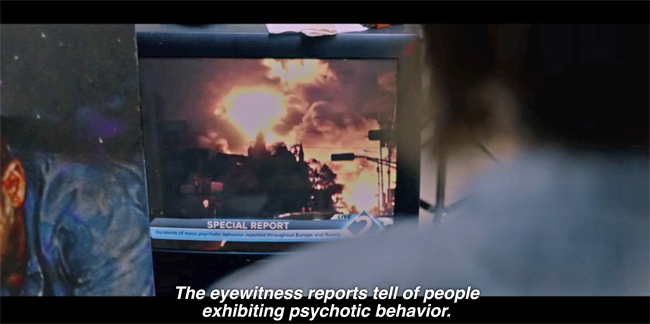
An enormous number of Netflix viewers watched Bird Box, the Sandra Bullock-starring adaptation of Josh Malerman’s best-selling novel about a better-unseen apocalyptic threat to humanity. The movie has not arrived without controversy, including how the streaming giant had to warn people not to do the “Bird Box challenge” involving potentially dangerous actions while blindfolded, and YouTube later banned videos to that effect. There’s more contention brewing because, as it turns out, footage from a real-life train disaster appeared in the film. And as the BBC reports, Netflix has decided not to remove the clip, which arrives during a TV montage that portrays global fallout (with Bullock’s character clicking through channels) unfolding amid the apocalypse.
The disaster in question occurred in 2013 in Quebec, and victims of Canada’s Lac-Megantic tragedy (47 people died, and much of the surrounding town suffered heavy damage from the resulting, widespread fire) understandably wouldn’t be thrilled to see the event in a fictional production. Here’s a screencap from the scene in question (shortly after the 4:00 minute mark in the film), showing the fire that’s used to portray unrest taking place in Europe.

And here’s source footage from the disaster, as previously aired by CBC News.
Mashable details how another Netflix project has also used this footage while confirming that the streaming service won’t take further action:
This is the second time this specific footage, provided by stock image company Pond 5, has been used in a Netflix original project. It first appeared in an episode of Netflix’s Travelers — although the series’ production company recently apologized for using the footage without first identifying the source, and promised in a statement to remove the clips.
Per a conversation with Mashable, Netflix has determined that they will not do the same in the case of Bird Box and the film will remain as is.
The current mayor of Lac-Megantic, Julie Morin, has decried the use of the footage in these two Netflix projects. “We find that it’s really a lack of respect,” Morin said to Canadian news sources (as relayed by the Washington Post). “It’s hard enough for our citizens to see these images when they are used normally and respectfully on the news. Just imagine to have them used as fiction.”
(Via Mashable, BBC & Washington Post)






